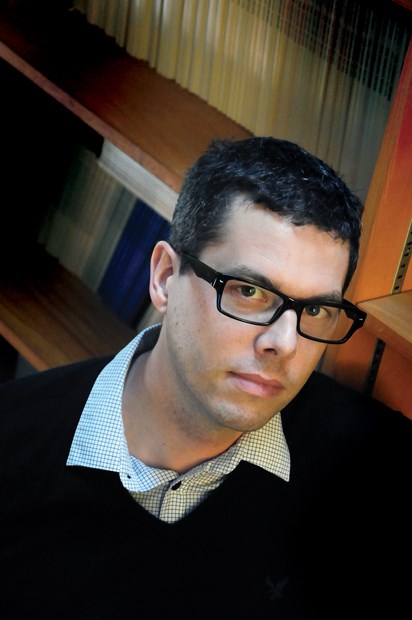Capilano University will soon lose a literary arm, the well-respected Capilano Review magazine, to ongoing budget cuts at the educational institution.
The Capilano Review is widely respected in the Canadian arts community for its commitment to publishing avant-garde literary and visual works from emerging artists.
Celebrated Canadian painter and poet Pierre Coupey founded the now tri-annual literary magazine in 1972 at then-called Capilano College, where he was an English instructor.
Working with a shoestring budget back then - the college and its student union each contributed $500 - Coupey cobbled together TCR's inaugural issue which featured the works of Canadian literary giant George Bowering.
"In the late '60s, it was a small literary community. It was possible to know anybody who was anybody. You were able to have those connections," explained Coupey, in an interview with The News.
Early works from acclaimed Canadian authors Michael Ondaatje (The English Patient) and Order of Canada recipient Daphne Marlatt were featured in TCR.
Over the years, the magazine has evolved to include a network of programs including artists' workshops, multimedia performances and other community events.
The visual arts component, according to Coupey, lends TCR a distinction in the arts publishing arena.
"There's a great tradition here that we are speaking of," said Coupey. "The fate of the culture depends so much on the little magazines."
This past summer TCR learned it would not be receiving its annual funding grant from CapU.
Capilano Review editor Brook Houglum said that funding increased slightly on an annual basis - last year it was $85,000 - and covered the salaries of the managing editor and editor, as well as some administrative costs.
TCR's most recent operating budget is $186,315. The magazine also receives annual operating grants from the BC Arts Council, and the Canada Council for approximately $10,000 and $42,000 respectively.
"I mean, certainly the funding loss is huge for a small magazine," said Houglum.
As a result of its new financial circumstances, this summer TCR will move off the CapU campus.
In an emailed statement, CapU's vice-president of academic and provost, Richard Gale, said the university was prepared to continue to house and oversee The Review's operations, but only if they were able to cover their operating expenses, including editorial costs, staff, and overhead, through subscriptions and external sources of revenue.
"The Review opted to become an independent publication, and we have been working toward that goal throughout the year," said Gale.
"Capilano University appreciates and applauds the work of the Capilano Review, and congratulates them on their Kickstarter fundraising success," he said.
For Coupey, it's more than just the money that is at stake. The magazine is also a great resource for CapU's creative writing students, offering some of them internships, he explained.
"That's where the huge loss is - it was always TCR's mandate to serve the students," he said.
But this isn't TCR's final chapter. This past fall, the magazine's editorial board and its supporters banded together to save The Review. A recent crowdfunding campaign raised $21,360 in one month.
TCR's managing editor Todd Nickel said he's blown away by the far-reaching support for the magazine, which has more than 600 regular subscribers.
"All of us are really excited for the future, especially given the amazing show of support we received from the literary arts community. I'm preparing rewards and thank-yous to send to our campaign supports throughout the Lower Mainland, to Halifax, and everywhere in-between, as well as the United States, the UK, and Germany."
TCR staff plan to seamlessly transition this summer to a new home in Vancouver, where the magazine will continue with its mandate of being a great resource of Canadian cultural history.
Jenny Penberthy, past editor and current president of the Capilano Press Society said it would be financially impossible for TCR to continue operating within the institution.
The magazine has boosted the reputation of the creative writing program, the English department and the university itself, Penberthy added.
"Writers, artists, and readers across Canada and the U.S. have expressed their dismay and incredulity that the university would want to withdraw their long-standing funding of a magazine that brings them so much credit," she stated in an email.



